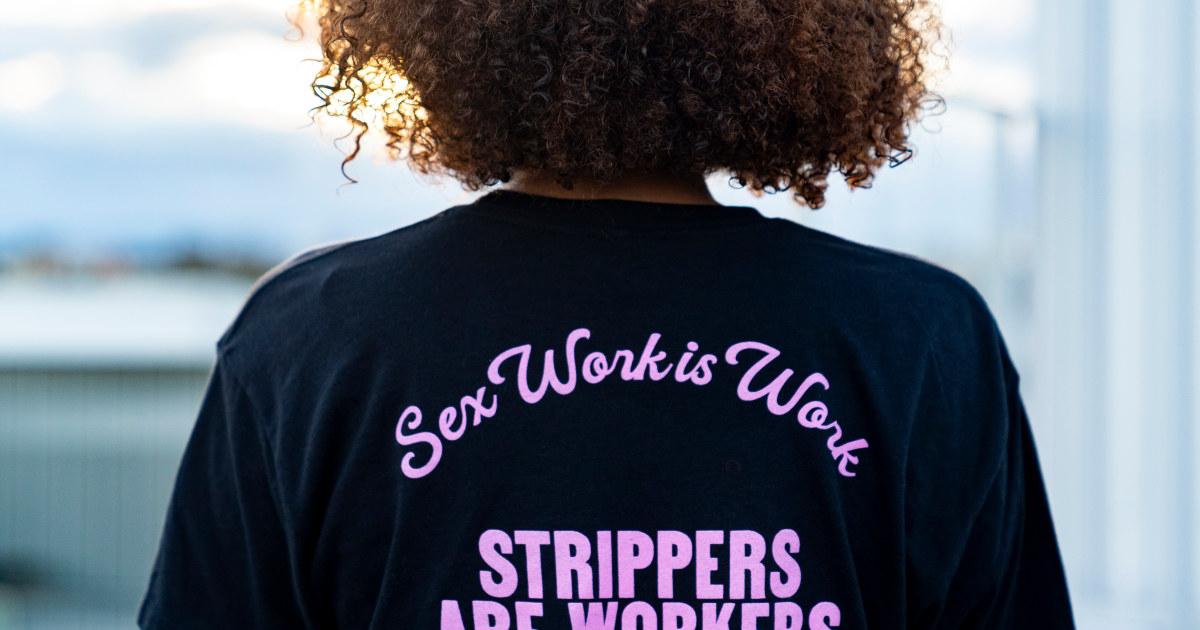By
The Associated Press
A law known as the stripper
bill of rights was signed into law in Washington state on Monday
, which advocates say includes the most comprehensive state protections in the country.
Gov. Jay Inslee signed the measure, which creates safer working conditions for adult entertainment workers and allows clubs to sell alcohol.
“Strippers are workers and should have the same rights and protections as any other workforce,” Seattle Senator Rebecca Saldaña, sponsor of the bill, stated in a press release.
“If they are employed in a legal Washington establishment, they deserve the rights that every worker has access to, including protection from exploitation, trafficking and abuse.”
File photo of Andrea, no last name, who works as a stripper in Seattle-area clubs, poses for a portrait in her apartment on Feb. 1, 2024, in Seattle.
Lindsey Wasson/AP
The new law requires establishment employees to receive training to prevent sexual harassment, identify and report human trafficking, de-escalate conflicts, and provide first aid.
It also mandates that there be security workers in the venues, codes in the dressing rooms and panic buttons in places where artists can be alone with clients.
Most of the state's dancers are independent contractors who collect from clients and then must pay club dues each shift, Zack-Wu explained.
The new law limits the fees owners can charge, capped at $150 or 30% of the amount dancers earn during their shift, whichever is less.
It also prohibits late fees and other fees related to unpaid balances.
The state Department of Labor and Industries will draft new rules and guidelines to introduce changes to workplace safety standards early next year.
The new law also allows adult entertainment businesses to obtain licenses to sell alcoholic beverages.
The law links these licenses to compliance with new safety regulations.
Strippers Are Workers, a dancer-led organization in the state since 2018, advocated for regulations and alcohol sales.
According to Madison Zack-Wu, the group's campaign director, the organization's efforts were launched in response to extensive regulatory loopholes for people performing at the 11 adult entertainment clubs across the state.
But there were also concerns that adding the protections without adding revenue from alcohol sales could lead some clubs to close.
“We don't want clubs to close now or in the future, because that would leave everyone out of work and put them in even more dangerous situations,” he previously stated.
[“Human rights are not violated here.” Noticias Telemundo visits megaprison designed by Bukele]
State Liquor and Cannabis Board spokesman Brian Smith told The News Tribune that it could take more than a year to get the liquor licensing process for clubs underway.
Only one other state has added job protections for adult performers, according to the National Conference of State Legislatures.
In 2019, Illinois began requiring adult entertainment establishments, along with other businesses, to have a written sexual harassment policy.
There have also been other efforts — including at a bar in Los Angeles and a strip club in Portland, Oregon, where workers voted to unionize.
Additionally, the Nevada Supreme Court ruled in 2014 that dancers at a Las Vegas club are employees and entitled to minimum wage and other protections.
“It is crucial that we confront the stigma surrounding adult entertainment and recognize the humanity of those involved in the industry,” Saldaña said.

